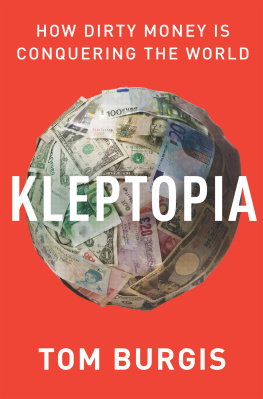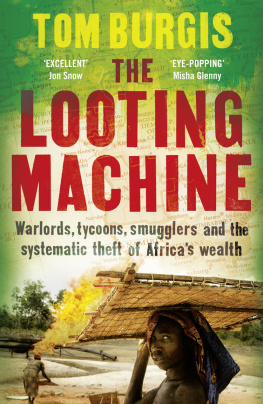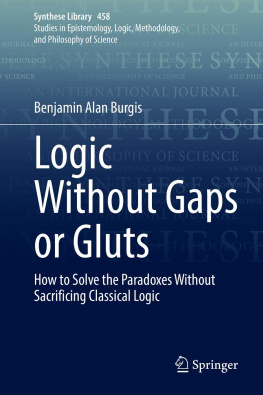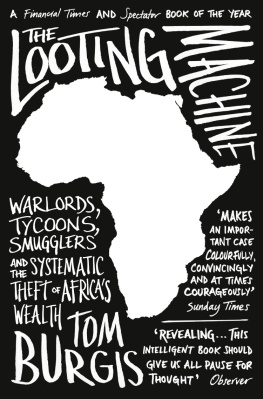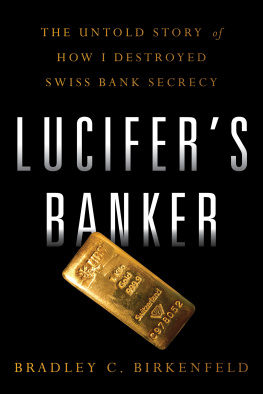Contents
Guide
For Camilla
Contents
T his is a true story. Each of the facts of which it is composed comes from an interview or a document, corroborated wherever possible by other sources. Where a character is described as thinking something, that is because they told the author their thoughts or otherwise recorded them. Every character was given a chance to check facts before publication. Where there are conflicting accounts of an event, the version that appears most probable is given in the text, with the dispute discussed in the notes. The notes contain a description of the source of every significant piece of information in the book. In the cases when sources would only speak on condition of anonymity, they are described with as much detail as possible without making them identifiable. Occasionally, all that can be said is that the source of a particular fact is a confidential interview. This is because the source in question could face reprisals for revealing what he or she knew. While anonymous sources are not ideal, especially in a book about the nefarious power of secrecy, it is important for those whom others would wish to silence to have their voice in this way, subject to the authors best efforts to test their credibility. The truth has had a rough time in recent years. The authors endeavour here has been to lay open the foundations on which this story is built in such a way that the reader might both believe it and enjoy it.
In London
Nigel Wilkins Head of compliance at the London office of the Swiss bank BSI, later on the staff of the City of London regulator, the Financial Conduct Authority
Charlotte Martin Nigels companion
Trefor Williams Ex-UK special forces, investigator at the private intelligence firm Diligence
Ron Wahid Bangladeshi-American founder of the private intelligence firm Arcanum
Neil Gerrard Lawyer at the City firm Dechert
The Trio
Alexander Machkevitch aka Sasha Kyrgyz-born member of the Trio of Central Asian billionaires behind Eurasian Natural Resources Corporation (ENRC)
Patokh Chodiev Uzbek-born member of the Trio
Alijan Ibragimov Kyrgyz-Uighur member of the Trio
Mehmet Dalman British-Cypriot City financier, ENRC director then chairman
Victor Hanna The Trios man in Africa
Shawn McCormick Ex-US intelligence official hired by ENRC
The khan
Nursultan Nazarbayev Ruler of Kazakhstan since 1989, president until 2019 then chair of the Security Council
Rakhat Aliyev aka Sugar Nazarbayevs son-in-law, later in exile
Timur Kulibayev Nazarbayevs other son-in-law, billionaire
Kenes Rakishev Kulibayevs protg
The oligarch
Mukhtar Ablyazov Kazakh ex-minister, tycoon and founder of BTA Bank
Peter Sahlas Canadian lawyer retained by Ablyazov
Madina Ablyazova Ablyazovs daughter, in Geneva
Iliyas Khrapunov Madinas husband
Leila Khrapunova Kazakh businesswoman, Iliyass mother
Viktor Khrapunov Kazakh politician, Iliyass stepfather
Bota Jardemalie Harvard-trained Kazakh lawyer at BTA Bank
The gangsters
Semyon Mogilevich aka Seva aka the Brainy Don Moscows premier criminal moneyman
Sergei Mikhailov aka Mikhas Boss of the Solntsevskaya Bratva, a Russian crime syndicate
In Africa
Billy Rautenbach Zimbabwean businessman, backer of Robert Mugabes regime
Robert Mugabe Ruler of Zimbabwe, 19802017
Emmerson Mnangagwa aka the Crocodile Mugabes security chief, then successor
Joseph Kabila President of the Democratic Republic of Congo, 20012019
Augustin Katumba Mwanke Kabilas right-hand man, died in 2012
Dan Gertler Israeli mining tycoon close to Kabila and Katumba
In North America
Felix Sater Russian-American fraudster, money launderer, spy and real estate developer
Tevfik Arif Kazakh founder of the New York real estate venture where Sater worked, Bayrock
Boris Birshtein Soviet-era moneyman residing in Toronto
Alex Shnaider Russian-Canadian billionaire, Birshteins protg and, for a time, son-in-law
Every man lives his real, most interesting life under cover of secrecy
Anton Chekhov,
The Lady with the Dog
The secret of a great fortune with no apparent cause is a crime that has been forgotten because it was done properly
Honor de Balzac,
Old Goriot
M oral courage, yes, but it was also mischief, a quality discernible in the creases at the corners of his eyes, that made Nigel Wilkins decide to steal the secrets of a Swiss bank. It was the year when everything changed, 2008, the end of the old days. Forty years he had worked in banking, though he had never really been a banker. Not the way the bankers themselves used the word, nor the way other people had lately started using it. For one thing, he was much too shy. He could shoot a look of granite through his spectacles. Yet behind it lay not simply the stifled arrogance of the cleverest man anyone who knew him had ever met, but also an unbearable awkwardness. No self-respecting master of the universe would be seen dead in one of Nigels frilly shirts. Nor would they yield to baldness as gamely as Nigel had, consigning the last of his once voluminous locks to a small cardboard box labelled Nigels hair that he displayed on a shelf in his flat. They probably wouldnt have thought about money as much as Nigel had. Thought about it, as opposed to just multiplying it. In his teens, Nigel had been enthralled by the Labour prime minister Harold Wilson, who terrified the establishment with his long Yorkshire vowels and his way of explaining in a straightforward way the meanings of money: who had it, how they got it and why the great many who lacked it might have a decent claim to a bigger share of it. Nigel had started investing his pocket money, as others experimented with a chemistry set or crueller ones held a magnifying glass over a slug. Mathematical ideas that made practical sense, that was what he liked. He thought about becoming an engineer but his temperament needed a discipline that had more room for disagreement and debate. He found economics: the art of telling moneys stories.
Nigel was freer than many in his world because, although he had made plenty of it and parted with little of it, money had no hold on him. The things that others were compelled to buy were for him an encumbrance: mobile phones, televisions. He preferred his old radio and the antediluvian three-piece suite a friend had given him. During the war, his father, Arthur Wilkins, had worked in a factory making armoured vehicles in Basingstoke, a humdrum town west of London. Afterwards, he became a Methodist lay preacher. Nigel Charles, his second and final child, was born on the hinge of the century, March 19, 1950, into a generation for whom frugality, after it ceased to be the only option, became either a penance for others greater sacrifices or a curse to be lifted with material excess. Nigels great treat would be a first-class ticket for a long train ride, mainly to savour the complimentary scrambled eggs. Perhaps a bit of cake later, after listening to an edifying talk. At his flat four floors up in Kensington, a brisk walk from Buckingham Palace or the royal parks, less brisk when his chest gave him trouble he would repair rather than replace. On the mantelpiece stood a photograph of him on a rare holiday, aboard a canal boat. The bookshelves were full of economics, finance, international law. Behind the Corporate Veil, Infectious Greed, What is Sarbanes-Oxley?
Next page
